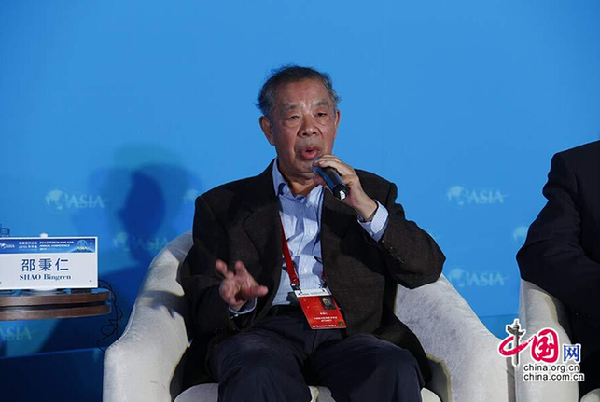China SOE reform: bumpy, crucial ride ahead
- By Zhang Lulu
 0 Comment(s)
0 Comment(s) Print
Print E-mail China.org.cn, March 28, 2015
E-mail China.org.cn, March 28, 2015
 |
| Shao Bingren, former deputy director of China's Economic Restructuring Office. [Photo/China.org.cn] |
The reform of China's state-owned enterprises (SOEs) has a bumpy ride ahead, but it is key to revitalizing the country's state sector, said officials and academics during a panel discussion at the Boao Forum for Asia on Friday.
China announced an overhaul of its state-owned sector during the landmark third plenum of the 18th Chinese Communist Party Congress held in 2013. Some SOE reform pilot programs have been carried out since then, but significant achievement is yet to be seen.
A crucial aspect of the SOE reform is "mixed ownership," which means inviting private investment into SOEs, but the private sector seems to be lukewarm about involvement in SOEs.
Shao Bingren, former deputy director of the Economic Restructuring Office (an office similar to today's National Development and Reform Commission), said that mixed ownership is nothing new to the state sector, but that the key to the issue is to break the monopolies of many SOEs.
Statistics show that some 45 percent of China's SOEs are already "of mixed ownership," but 92 percent of all SOEs hold more than 50 percent of their own stock, meaning that most of the SOEs have a controlling stake in themselves. Monopolies are even more prevalent in industries such as electricity, energy, railways, telecommunications and so on.
"In the past decade or so, the reform of SOEs was not pushed forward, but has retrogressed in some aspects," Shao said.






Go to Forum >>0 Comment(s)